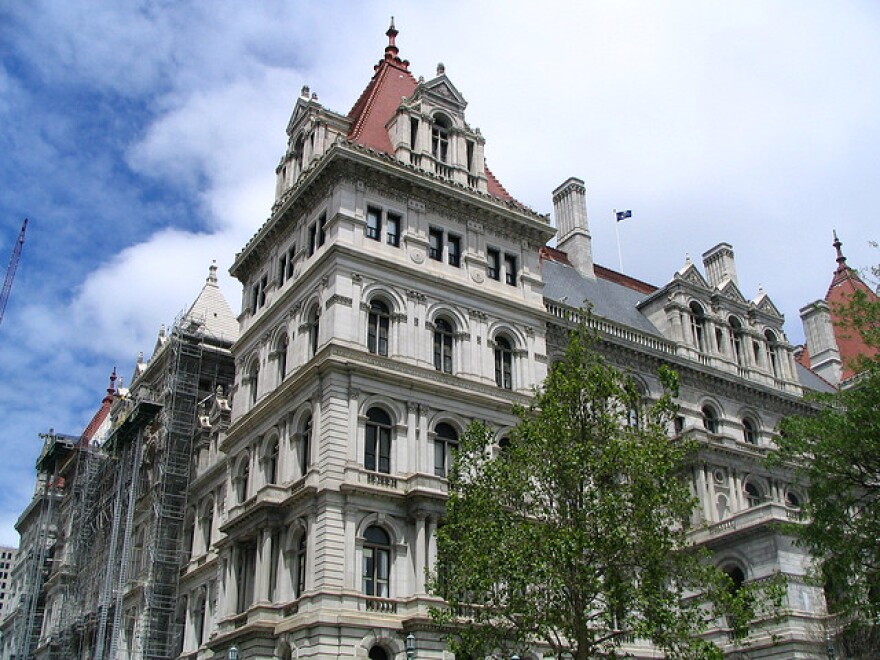New York City’s rent laws expire June 15, and tenant advocates and some state lawmakers think a renewal of the laws should include cities outside of New York, including upstate.
A hearing held by the state Assembly sought input on that proposal and eight other rent reform bills introduced in both houses of the Democratic-controlled legislature.
Michael McKee has been a tenant advocate in New York City for 49 years and is now a member of the recently formed Upstate Downstate Housing Alliance. He acknowledged that to many lawmakers outside New York City, it’s a "new idea" to extend rent regulations.
But he said housing crises and the lack of rights for tenants in cities like Rochester, Buffalo and Syracuse, make it worthy of serious consideration. And he said the momentum is coming from the tenants themselves.
"This is a national movement," said McKee, who added that tenants have been organizing for rent regulations in Chicago and Texas, and the state of Oregon recently approved statewide rent regulations. "This is an incredibly exciting development."
New York City has about 1 million rent-stabilized apartments. An additional 22,000 units fall under the older system known as rent control.
Currently, rent stabilization rules extend to some apartments in Nassau, Rockland and Westchester counties. One of the bills before the Legislature would extend the option of adopting rent stabilization in other communities in New York if the apartment vacancy rate is at 5% or lower.
Ellen Davidson is a housing attorney with the Legal Aid Society. She represents indigent tenants in court over disputes with their landlords. Davidson said tenants all over the state are virtually powerless when negotiating rental terms with the building owners.
She recounted the tale of a formerly homeless tenant offered an apartment in Buffalo "as is," with no insulation in the walls, which she said would significantly add to fuel costs during the winter.
"They are so delighted of having the opportunity of having a roof over their heads that they accept it," Davidson said.
Tenant advocates also are seeking to close what they say are loopholes in the current rent regulations.
One is what’s known as vacancy decontrol. It was enacted in 1997, and permits landlords to leave the regulated system in two ways. One allows the owner of the building to charge market value rents when a tenant voluntarily vacates an apartment. Under the rent stabilization system, landlords are allowed to raise rents by a set percentage each year, decided by the Rent Guidelines Board. Once that amount reaches a certain threshold, also set by the guidelines board, the apartment also can be rented for the higher, free market rate.
In the over two decades since the law was passed, 300,000 units have been phased out of the rent regulation system.
The tenant advocates would like to end vacancy decontrol and take back into the system apartments that have been deregulated in the past six years.
The advocates, as well as several Democratic lawmakers, want to pass a new law known as the "good cause" measure that would strengthen tenants’ rights when dealing with landlords seeking eviction.
Assembly Housing Committee chair Steven Cymbrowitz, who presided over the hearing, said the bills are aimed at achieving a higher goal.
"Every individual, every family and every community needs quality, affordable housing," Cymbrowitz said.
Housing and Community Renewal Commissioner RuthAnne Visnauskas also testified. She did not offer her opinion on any of the bills, but promised lawmakers that she would give them the agency’s views on them soon.
"I suspect we will be doing that early and often," Visnauskas said.
In his State of the State speech in January, Gov. Andrew Cuomo said he supports reforming the rent regulations and wants to end vacancy decontrol. The governor did not mention extending the rent laws to areas outside New York City and the three other downstate counties where it is permitted.
McKee urged the Democrats who lead both the Assembly and the Senate to work together and resist attempts to weaken the bills.
"We believe very strongly that if you do not work together, tenants are going to be screwed," McKee warned. "We have a governor who will do everything he possibly can to undo what we’re trying to do and water it down."
Caitlin Girouard, a spokeswoman for the governor, said in a statement that the governor remains "fully committed to working with the Legislature and tenant community to reform rent regulations, including ending vacancy decontrol, repealing preferential rent and limiting capital improvement charges to protect affordable housing and respect tenants’ rights."
The real estate industry in New York City has long been opposed to rent regulations. They donated large amounts of campaign money to Republican senators when the GOP was in power in the Senate.
This year, the Democrats rule the chamber, and some have received money from the industry, as well as from other donors. But the Democrats say the contributions won’t influence their decisions on how to structure rent regulations going forward.








